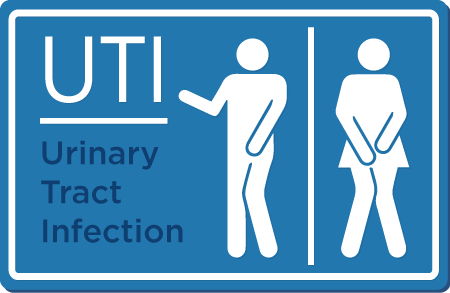
Urinary tract infections are very common in women, so common, in fact, one in every two adult women will contract a urinary tract infection at least once.
Although there are not always overt symptoms of a urinary tract infection, there are some definite signs that you might have one.
What are the symptoms of a urinary tract infection?
Urinary tract infection symptoms include:
- A strong, constant urge to urinate
- A burning feeling when you urinate
- Urinating, but only urinating small amounts frequently
- Cloudy urine
- Urine that looks red, bright pink or cola-colored means that there might be blood in your urine.
- A strong odor in your urine
- Pelvic pain, in women — especially in the center of the pelvis and around the area of the pubic bone.
What causes urinary tract infections?
Urinary tract infections happen when microbes take over the body’s defenses in the urinary tract. Urinary tract infections can have different names depending on the different parts of the urinary tract. These names include:
- Bladder infection = Cystitis
- Urethra infection = Urethritis
- Kidney infection = Pyelonephritis
How do doctors diagnose urinary tract infections?
Typically, your healthcare provider will ask you about your symptoms before collecting a urine sample to test white blood cells, red blood cells and bacteria. If you have UTIs that occur regularly, your doctor might want to perform further tests. These tests could include:
- Diagnostic imaging – taking a closer look at the urinary tract using ultrasound, CT scanning, MRI scanning, radiation tracking or X-rays.
- Urodynamics – a process that helps doctors learn how well the urinary tract is storing and releasing urine.
- Cystoscopy – taking a closer look inside the bladder and urethra. This is done with a camera lens inserted into the urethra through a long thin tube.
What are treatment options for urinary tract infections?
There are two types of UTIs to consider when deciding what treatment to try:
- Uncomplicated UTI – one that happens to a healthy person with a normal urinary tract. These can be cured within days using an antibiotic and drinking lots of water.
- Complicated UTI – one that happens to someone who is already vulnerable because of another condition, like pregnancy or a heart transplant, or someone whose urinary tract is compromised because of an obstructive kidney stone or enlarged prostate. These often mean a longer time period for antibiotics, sometimes up to two weeks.
Other patients at a higher risk of having a complicated UTI include:
- Elderly people
- Cancer patients
- Multiple sclerosis patients
- Kidney stone sufferers
Women are most often diagnosed with uncomplicated urinary tract infections, while men, on the other hand, are more often considered to have complicated urinary tract infections until proven otherwise.
